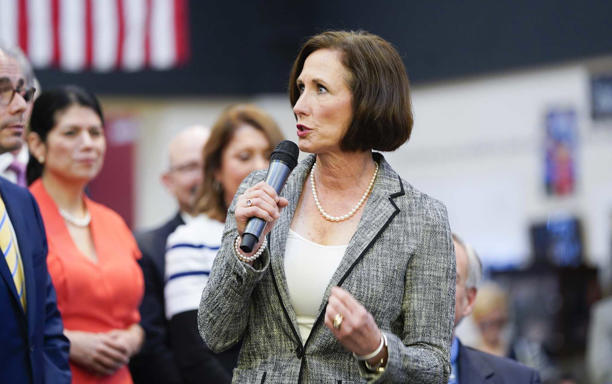Story by Jeremy Wallace
After days of protests, the author of a bill to bar citizens from China and three other countries from buying land in Texas is promising changes to alleviate concerns that the legislation is too broad and could have unintended consequences.
But State Sen. Lois Kolkhorst, R-Brenham, said she’s still pressing ahead with the legislation because she worries about Texas selling large plots of land to businesses or people acting as agents for unfriendly nations.
“We are really trying to do something to protect Texans and our national security,” Kolkhorst said Wednesday.
Kolkhorst’s SB 147 would bar government entities, businesses and citizens from China, Russia, North Korea and Iran from buying land in Texas. She said the legislation builds off of a law she passed in 2021 that already bars businesses from those countries from buying critical infrastructure, like power facilities and telecommunications communities.
But after days of protests in Houston and Austin, Kolkhorst said she’s prepared to improve the bill by making sure legal permanent residents — green card holders — and maybe those in the pipeline to become citizens aren’t blocked from buying land. There are about 100,000 legal green card holders in the United States from those four nations, according to the U.S. Department of Homeland Security.
“We are going to make a few changes to the bill,” said Kolkhorst, whose newly redrawn district includes parts of northwest Harris, Fort Bend, Montgomery and Waller counties. Thirteen percent of her district’s residents are Asian, according to the Legislature, one of the highest percentages of any state senate district.
Still, it may not be enough to win the support of Democrats who have slammed the bill as racist and xenophobic.
State Rep. Gene Wu, D-Houston, said he’s still opposed to targeting people of specific backgrounds from owning land, noting that there are already other bills in the Legislature that would more narrowly prevent Chinese companies from buying agricultural land.
“What problem does that solve, other than make people who don’t like foreigners happy?
” Wu said.
Wu said it can take people nearly a decade to get their official citizenship in the U.S. He said excluding people who are on the pathway to citizenship or those holding green cards is unfair to them when people from other nationalities would continue to have the right to buy land.
On a visit to Houston this week, Shirley Xueyuan Xu, the deputy chief of mission at the Chinese embassy in Washington, D.C., declined to comment directly on the proposal. But Xu said she has heard concerns from the local Chinese-American business community about it.
Likening the bill to the Chinese Exclusion Act of 1882, she said “it could cause trouble, damage to commercial relations between the two sides.”
Given the volume of trade between China and Texas, Xu said it was hard to understand “why the Chinese are unwelcome here,” and added that passing the legislation would create the impression that “Texas, or even the U.S, was not an open, free market.”
Kolkhorst first filed the bill in November, but last week, Gov. Greg Abbott, a Republican, announced on Twitter his support for the legislation and promised to sign it if it passes the Legislature. The bill has not had a hearing yet in the Texas Legislature, which officially got underway on Jan. 10 and runs through May 29.
Kolkhorst said her bill is partly a response to a Chinese energy company’s 2021 failed attempt to purchase 130,000 acres for wind farms near Del Rio and just 70 miles from Laughlin Air Force Base.

